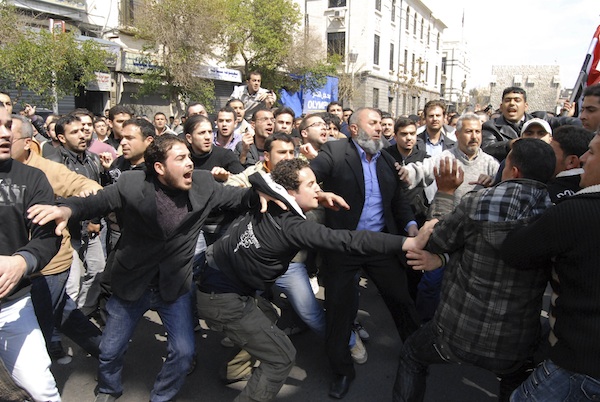Ehud
JF-Expert Member
- Feb 12, 2008
- 2,685
- 337
Bashir al Asad inaonekana hataki kuona kile kinachompata mwenzake Gadafi na imeripotiwa kuwa majeshi yake yamewaua Wa-Syria 100! Huyu atakuwa anatafuta kichapo kwa lazima
More than 100 killed in Syrian protest: activists
More than 100 killed in Syrian protest: activists
